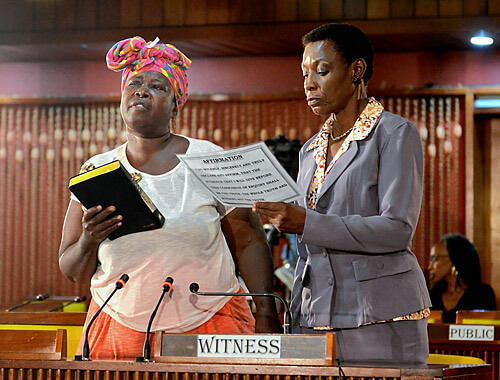Once again, authorities in Trinidad are tapping into a special rainy day fund to help finance a deficit 2017 budget, ailing in part because of the prolonged depression of oil and gas prices on the international market and for petroleum-related products in general.
Years ago, a cabinet run by the same People’s National Movement (PNM) government that is in power today, had established something called the Heritage Stabilization Fund (HSF) where millions of dollars are placed in a special account each month in the event of dramatic twists and turns in the local and international economy.
In recent days, Prime Minister Keith Rowley and the Ministry of Finance have given very clear signals that though oil prices are closer to surpassing the $50 mark per barrel, rates are still too low for the country to garner enough revenue to run the country so it is becoming quite necessary for officials to tap into this very fund.
The ministry said in a statement this week that cabinet had approved a drawdown of $251M from the fund much as it had ordered back in mid 2016 when a total of $375M was taken from the fund during a similar period of economic uncertainty.
And while officials moved quickly to assure locals that there is no cause for alarm, the main opposition United National Congress (UNC) is blaming economic mismanagement the latest raid on the fund.
Former Minister of Planning Bhoe Tewarie said little was being done to reverse months of decline as he cautioned against tapping into the fund with oil prices not climbing back to the days when rates were more than $100 per barrel.
“This is in addition to about TT$11 billion already borrowed during their term so far, a worsening debt-to-GDP ratio as borrowings increase and the GDP continues to decline,” said Tewarie. “We are very worried and concerned about how our country is going to repay such high debt in the absence of confidence in the absence of economic growth and with prosperity nowhere near on the horizon.”
In moving to draw down from the fund, Trinidad is joining Suriname, which has in the past two years turned to its own special Central Bank deposits to keep the country float as oil prices tanked and as rates for bauxite and gold, the country’s primary and main foreign exchange earners, remained depressed, plunging the nation into deep economic recession.
To wade its way through the crisis, the administration of President Desi Bouterse has moved to the International Monetary Fund for a standby economic arrangement and has already been able to access $478M from the IMF while negotiating with the Islamic Development Bank for more than $1B for budget assistance. Suriname is also an oil producer and refiner.
The Trinidad government’s announcement stated that the money is strictly to “be used for the financing of the 2017 budget, in particular, the development program known as the Public Sector Investment Program (PSIP).”
And when the $375M was taken from the HSF back in 2016, the balance was an astonishing $5.42B but officials now argue that “since then, the fund has been able to recover through good management and good returns on investments. In fact, the balance in the HSF increased from US$5.42 billion in May 2016 to US$5.695 billion in March 2017” so there is no need to panic.
























